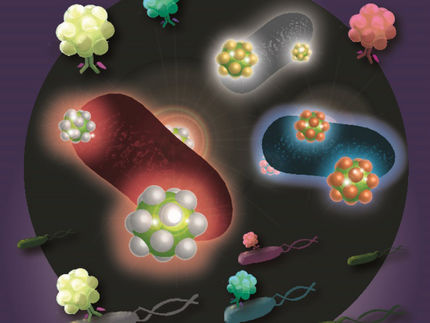EHEC outbreak 2011: Recommendations on the handling of sprouts
Advertisement
In Germany and the European Union, the investigations on the EHEC O104:H4 outbreak 2011 have now been completed. The authorities involved in the investigation have concluded that the outbreak was caused by fenugreek seeds imported from Egypt which were then used by a horticultural business in Lower Saxony and also by private individuals to produce sprouts. Where and how the seeds came into contact with the pathogen leading to the outbreak could not be determined. "This outbreak was one of the most devastating food-related outbreaks of the post-war years in Europe", says BfR President Professor Dr. Dr Andreas Hensel. "We will make use of the insights gained in the course of the investigations into the outbreak to ensure that we are optimally prepared for future crises in Germany and Europe."
As the outbreak was unfolding, the Federal Institute for Risk Assessment (BfR) continually provided scientific assessments of the latest consumer safety situation. On that basis, the Institute made recommendations to the competent state and federal authorities, business representatives, and consumers, while also providing information to its counterparts in all EU countries. The National Reference Laboratory (NRL) for E. coli which is based at the BfR made a significant contribution to the microbiological investigations into the outbreak and, in cooperation with an international cooperation partner (ANSES, France), developed the research methodology required for this purpose. In addition, the BfR cooperated with the EHEC Task Force based at the Federal Office of Consumer Protection and Food Safety (BVL) as well as the European Task Force, meaning that it was actively involved in the investigation of the outbreak in Germany and Europe.
On the basis of the knowledge gained in the course of the now completed investigation into the outbreak and of an expert opinion by the Panel on Biological Hazards of the European Safety Authority (EFSA) published on 15 November 2011, the BfR has updated its recommendations. The following recommendations seek to prevent infection after consumption of sprouts and seedlings and are aimed at consumers as well as those who bring sprouts and sprout seeds into circulation:
When cultivating, storing, treating and transporting seeds used in the production of sprouts, companies must observe strict hygienic standards in order to minimise the risk of contamination to the greatest extent possible. In addition, producers of sprouts are advised to use only seeds that have been cultivated specifically for the purpose of sprout production. Where possible, sprout seeds should be treated using suitable germ-reducing procedures, especially where the resulting sprouts are intended for raw consumption. The production process and the produced sprouts should be tested by means of microbiological analysis at regular intervals.
The BfR points out to consumers that sprouts may be contaminated with pathogens which, however, are eliminated by cooking and frying. Persons with a weak immune system should, to be on the safe side, therefore only eat sprouts after they have been sufficiently heated. In order to reduce contamination by germs, sprouts that are eaten raw should be washed thoroughly and consumed as quickly as possible. Germs cannot be safely eliminated by washing the sprouts, however. As a precaution, fenugreek seeds purchased before October 2011 should not be cultivated. They should instead be used in thoroughly cooked dishes or disposed of as household rubbish.


























































